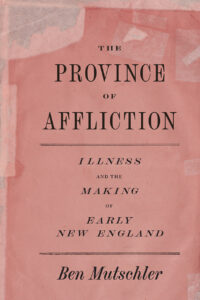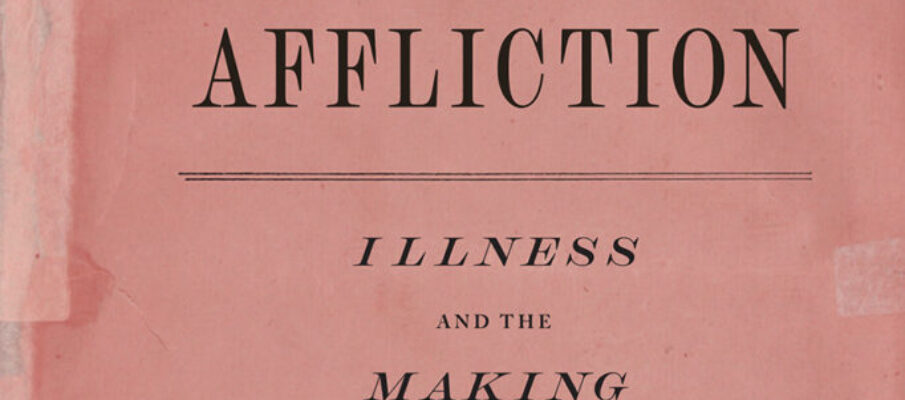“From these things therefore it is clear that the city-state is a natural growth, and that man is by nature an animal that lives in a polis, and a man that is by nature and not merely by fortune citiless is either low in the scale of humanity or above it […]” – Aristotle, “Politics” (Book I)
Our early hominid ancestors were not so fortunate as to have large claws or great size, neither did they possess the strength of the apex predators nor the speed to run from them effectively. They were small, puny creatures that were just as likely to be prey as were the animals that they hunted or upon which they scavenged. What they did seem to possess, however, was the instinct to stick together. By doing so, they could maximize what they minimally possessed so as to make their individual weaknesses less of a threat to their continued existence. At first this was likely rudimentary, but over time, it apparently evolved into the social structures that allowed for a level of cohesion where the sick and injured were not necessarily abandoned but tended, in order that they could recover and once again become contributing members of the group. The intricacies and societal effects of this tending to the sick and injured, both in their immediate as well as longer-term needs, how it was accomplished, the benefits and burdens it imparted to and laid upon those involved, and the manner in which it shaped the developing society, are the central themes of Dr. Ben Mutschler’s new book The Province of Affliction; Illness and the Making of New England, a work noteworthy for both what it has to teach about its designated historical period as well as about some of the most pressing challenges of that time that we continue to face today.
Taking as his focus the Massachusetts colony from its founding to a geographically expanded early post-revolutionary New England, with particular attention given to the middle years of the eighteenth century, Prof. Mutschler works from the microcosm of the family, and at times even the individual, outward. Presenting very detailed portraits of named individuals and families afflicted by disease or injury whose situations have been well documented through diaries, letters, and civil records, Prof. Mutschler is able to draw the reader deeply into his narrative, thereby making his historical analysis both penetrating into his areas of examination as well as personally interesting to his readers.
The book’s title – The Province of Affliction – isn’t merely a particularly well-wrought turn of phrase, it is an over-arching metaphor for the experience of illness and injury in colonial America, for when one is subject to either of these slings and arrows of outrageous fortune, one moves from a geopolitical province into a new existential one – complete with its own customs, practices, laws, and economic systems – that simultaneously occupies space, but not always time, with the former. Into this new province are also transported one’s family, the members of one’s household – or “competency” (a superb explanation of which is provided by Prof. Mutschler) – and perhaps all the members of one’s village or town. In instances where the visitor to the Province of Affliction is a stranger to the physical town where he or she first found him or herself first afflicted, the entire colony may become involved when the provision of care and payment of costs become necessary.
In reading this remarkable book, it is difficult not to find oneself stopping frequently to muse over just how familiar many of the challenges that faced these colonials are to us today, and how in all-too-many aspects we are not particularly much more effective at facing them ourselves. Take, for example, the Rev. Ebenezer Parkman and his family. Repeatedly beset by illnesses that required both watching (a tradition about which many today may have heard but the practices, nuances, and economics of which are not likely to be know prior to the reading of this book and Prof. Mutschler’s explanation of it) and medical treatment, but also hired help for both the household as well as the farm, Rev. Parkman’s family found it necessary to leverage both their hard-earned social capital and their hard currency in managing costs of their visits to the Province of Affliction.
Indeed, with hard currency in short supply, it was social capital that made involuntary visits to the Province manageable. The exchange of services and goods for one another, backed by the surety of a long-established history of reciprocal social involvement that allowed one to store up “soft” capital for use in time of future emergencies was what made much of everyday life possible in colonial Massachusetts. This, of course, left open the challenge of how to attend to the illnesses and injuries experienced by those lacking such stores of local social capital – the poor, those without a permanent residence, visitors, etc. – each of whom brought with them their own societal and cultural baggage.
Just as we today face a disease spreading throughout the land for which there is no cure nor preventative vaccine, so the colonists faced repeated outbreaks of smallpox, for which they at least had inoculation in the form of variolation, to which they also had opponents on both religious as well as physiological grounds (the latter of which at least, unlike those opposing vaccines today, did have some reason for concern as variolated individuals did require a period of isolation following the treatment to prevent potentially spreading the disease). While the progression of smallpox was by this eighteenth century well known, and the management of it complete with accepted practices, the long isolation it required of the infected person and their family, the need for the provision of their daily needs, the importance of the identification of and communication to the wider population of known outbreaks, the disruption to the local economy, and the detrimental effects it had to both individual as well as the larger community both in real time as well in into the indeterminate future, are chillingly familiar in their present-day repetitions.
Then there were the special challenges faced by those held in the condition of chattel slavery as practiced in antebellum America. Even though colonial Massachusetts was not particularly prominent in the Atlantic slave trade (and slavery there being made illegal in 1783), nor enslaved persons common to the townships of it, unique questions pertaining to those who found themselves within it nevertheless still applied when visits to the Province of Affliction were made. As enslaved individuals were not legally in possession of their own bodies, who was responsible to make the decisions of what manner of care was to be undertaken when illness or injury struck? Was an enslaved person able to seek out his or her own care if none was provided by his or her owner? As Prof. Mutschler explains, practices ranged widely. From the horrific decision made by the captain of the Zong to throw overboard 133 ill slaves being transported for sale in order to collect the insurance payable for drowning rather to let them die and thus be left uncompensated as natural deaths were outside of such insurance policies, to Phillis, a third generation daughter of enslaved people held by the Phelps family, who died as a child of what appear to be multiple acquired and potentially hereditary physical problems despite the extensive and expensive care provided for her throughout her short life by the Phelpses, the existence of enslaved persons in the Province of Affliction was even more variable and subject to circumstance than free persons making the visit.
As warfare was – to our senses today – surprisingly common and astonishingly brutal in colonial America, the treatment of injured soldiers also brought with it a number of special difficulties. What was to be done for and with those who became ill or injured during wars, or who were injured and never fully recovered so as to be able to return to the occupations by which they supported their families? Living “in a community of peril” that was outside of the areas where they might be able to rely on their accumulated social capital, ill and injured soldiers were faced with either needing to return to their homes for care (often a difficult, if not impossible, proposition), or to be tended by those who required hard-capital or some similar manner of physically compensating payment for such services.
Then there was the further question of what was to be done with them should they never recover? Having paid into a large and nebulous pool of social capital through their service, how was it to be drawn upon if needed? What did the colony, and later the country, owe in return for the loss of an arm or leg, and thereby the loss of a trade by which one’s living was made? While pensions for veterans date back in England to Queen Elizabeth I, the opinions of George Washington himself, favoring an honor-bound half-pay for life for disabled officers but a more sentimental and economically nebulous “warmest patronage” of the states for disabled rank and file soldiers rather effectively summarizes the division and ambiguity of public opinion on the matter, particularly regarding differences between injuries and illnesses, what recipients of any aid must do in return for it, and at what legislative level it was to be appropriately adjudicated. Indeed, these are questions that we have yet to answer satisfactorily and about which – despite copious amounts of too-often empty “we support our troops” rhetoric – we still disagree even today.
In reading The Province of Affliction, it is difficult not to find oneself contemplating how despite having come so far in many things, we have still not been able to master some of even the most essential challenges faced by those visiting the Province today. Faced with the outbreak of CoVid-19, we were unable to implement even the most basic of preventative restrictions, to say nothing of outright quarantines that were commonly implemented in colonial America, without rancorous, partisan, paranoia-fueled discord. We too often discuss health care only in regard to the cost and availability of the immediate treatment of illnesses or injuries, failing to consider the larger circles of effect upon family, friends, occupations, and communities, that such experiences bring. Similarly, a drive through the less-attractive areas of most any American city will show all-too-well how we have failed to address the long-term care of those who never fully recovered from their experiences in the nation’s many recent wars.
Most everyone reading this essay will likely know the oft-quoted words of George Santayana, “Those who cannot remember the past are condemned to repeat it.” In reading The Province of Affliction, we are presented with a past that we cannot be said to remember as it is not one most of us ever really knew. Yet it is one that it not only behooves us to learn for the sake of being able better to interpret and understand the period it examines, but also for what it can teach us today as we face many of the same challenges posed by the visits we presently may find ourselves, our family and friends, and our fellow citizens making to its existential title Province. Indeed, many of the challenges those of us in America particularly face in addressing such matters as how to care for the ill, the injured and the permanently infirm, the poor and strangers among us, and the veterans of the wars our nation has waged, are complicated by a very incomplete, too often simplistically caricatured, and in many cases flatly incorrect understanding of how such challenges were faced by our nation’s colonial inhabitants. This misunderstanding causes us to act in ways often detrimental not only to ourselves and our own nation but to others as well. We were not the “rugged individuals” too many among us think we were; we were rather the small, puny individuals who did their best to stick together to maximize what they minimally possessed so as to make their individual weaknesses less of a threat to their continued existence.
 Title: The Province of Affliction; Illness and the Making of New England
Title: The Province of Affliction; Illness and the Making of New England
Author: Ben Mutschler
Publisher: University of Chicago Press
Format: Cloth
Pages: 368 pp.
ISBN: 9780226714424
In accordance with Federal Trade Commission 16 CFR Part 255, it is disclosed that the copy of the book read in order to produce this review was provided gratis to the reviewer by the publisher.

